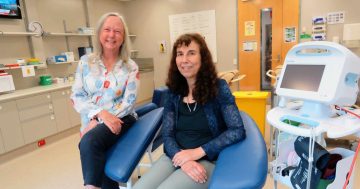 The University of South Australia (UniSA) is calling on egg lovers to participate in a new study to crack the question on whether a high-egg diet really increases bad cholesterol.
The University of South Australia (UniSA) is calling on egg lovers to participate in a new study to crack the question on whether a high-egg diet really increases bad cholesterol.
In a statement, the University said the study, conducted by the Alliance in Research in Exercise, Nutrition and Activity (ARENA) at UniSA, would compare blood cholesterol and other blood lipid levels to determine whether eggs helped or hindered cardiovascular disease risk.
“Boiled, scrambled, or fried, if you’re an egg lover, a better breakfast is hard to beat, but with eggs often associated with high cholesterol, it can be hard to know whether your meal choice is healthy or not,” UniSA said.
It said the UniSA research team hoped to crack the long-standing conundrum by testing the effects of high and low-egg diets, and high and low-saturated fat diets on cholesterol in the body.
Lead researcher for the study at UniSA, Jon Buckley said too much of the fatty deposits from cholesterol could lead to cardiovascular diseases (CVDs).
“Yet foods that are rich in cholesterol are also typically high in saturated fat, and we now think that it is the saturated fat rather than the cholesterol that’s associated with increasing blood levels of bad cholesterol and the risk of CVD,” Professor Buckley said.
“Eggs are high in cholesterol but low in saturated fat, so we believe that their consumption does not increase bad cholesterol,” he said.
“There’s also evidence that a key nutrient in eggs may cross into the brain and make people more physically active, so it could be that eggs are beneficial for us rather than increasing the risk of heart disease.”
UniSA is now recruiting suitable participants for the study and further information can be accessed at this PS News link.








